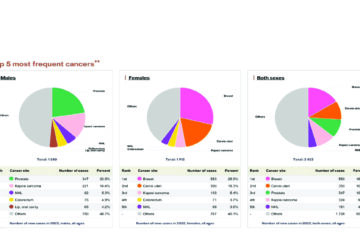Hertta-Maria Amutenja
Six Namibian nationals were repatriated from Southeast Asia after being trafficked between June 2024 and June 2025.
The victims, five from Myanmar and one from Laos, were returned to Namibia through coordination between Namibian authorities and international partners.
The minister of international relations and trade Selma Ashipala-Musavyi, shared this on Wednesday during the World Day Against Trafficking in Persons commemoration held in Rundu, Kavango East region.
“These are not just statistics. Each represents a case in which a person’s rights and dignity were violated. Our collective response must be rooted in justice,” she said.
Ashipala-Musavyi also confirmed that four foreign nationals trafficked from Namibia were repatriated during the same period.
Two were returned to Angola, one to Botswana, and one to Zambia.
She said Namibia continues to face trafficking both internally and across borders, with women and children being the most affected.
The country remains a source, transit, and destination for human trafficking.
The event was held under the theme “Human Trafficking is Organised Crime—End the Exploitation.”
Ashipala-Musavyi said the theme reflects the need for coordinated action between law enforcement, social services, and the justice system.
According to police reports she cited, six trafficking cases were officially recorded in the year under review.
She said national efforts include a high-level anti-trafficking committee chaired by her ministry, a specialised High Court unit for trafficking cases, and shelters operating in eight regions, which have assisted over 26 victims, including 12 children.
She noted that Namibia has ratified key international treaties and enacted the Combating of Trafficking in Persons Act of 2018, which criminalises all forms of human trafficking.
Prosecutor general Martha Imalwa also spoke at the event.
She expressed concern over low case detection in the Kavango regions, noting that only two trafficking cases are currently pending before the Rundu Magistrate’s Court.
One was reported in 2022, and the other is still under investigation after being reported in 2024.
“It is concerning that only two cases have been recorded over four years. This may reflect a lack of awareness among the public or gaps in detection and investigation by law enforcement,” Imalwa said.
She said children in the region continue to be used as domestic workers and that teenage pregnancies are common, yet these cases often don’t lead to formal trafficking investigations.
Imalwa called for training specialised police officers, prosecutors, and judicial staff to handle trafficking cases, stressing that those selected must be passionate and willing to work with traumatised victims.
She confirmed that the prosecutor general’s office has a specialised unit for trafficking offences that works with the Namibian Police.
In 2024, 16 prosecutors, immigration officials, and social workers were trained through a multisectoral programme.
Speaking at the same event, Florence Ntombesibini Situmbeko, head of the International Organisation for Migration (IOM) Namibia, said organised criminal networks are using technology and illicit systems to exploit vulnerable people.
“Trafficking is not random. It is profit-driven and highly coordinated. It demands a unified, preventive, and survivor-centred response,” Situmbeko said.
She noted that trafficking in the east and horn of Southern Africa is evolving, with syndicates exploiting migration flows, legal gaps, and digital platforms.
Situmbeko thanked the United States government and the IOM emergency fund for supporting victims of trafficking in Namibia.
She said the IOM’s work aligns with sustainable development goals (SDGs) 5.2, 8.7, and 10.7, which focus on eliminating violence, forced labour, and unsafe migration.




